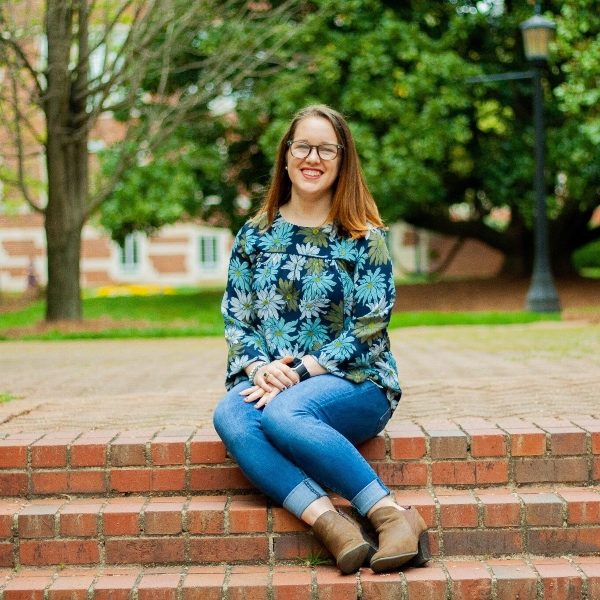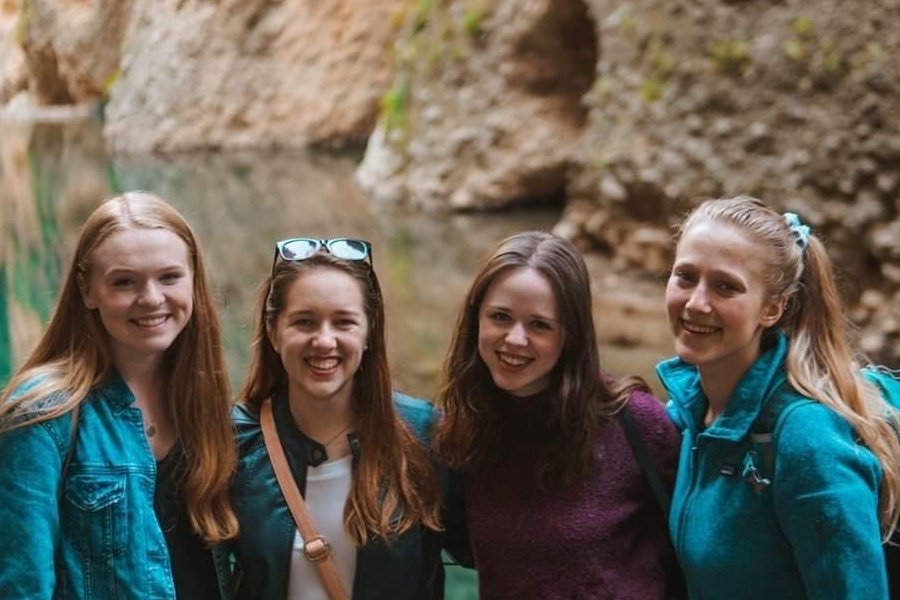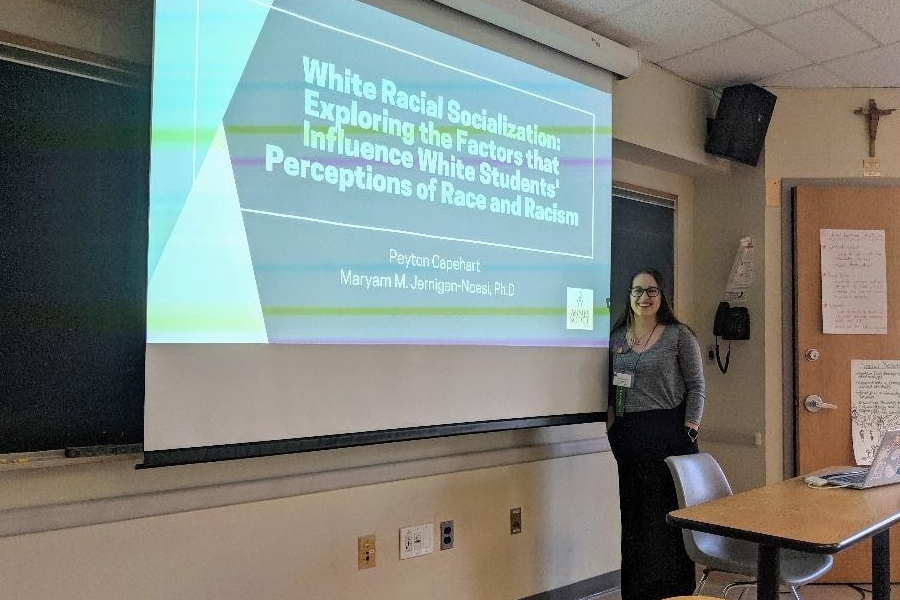This website uses cookies. Find out more in our Privacy Policy.
Peyton Capehart '21

Peyton Capehart '21, Psychology & Spanish Double Major
Peyton Capehart '21, a future clinical psychologist and a world-renowned researcher in the making, followed her aspirations of becoming a global leader to 香港澳门资料大全 and is now a Psychology and Spanish double major. She plans to earn a doctorate in Clinical Psychology after graduation and continue her work on white racial identity development and white socialization. As a current student, she has presented her research to experts in the field, using a mixed-methods methodology typically utilized by doctoral students. Since enrolling, Peyton’s service leadership style has fully emerged, fueling her desire to influence the world and driving her research endeavors.
How did a first-generation college student who graduated from a small-town high school where college “wasn’t necessarily a given” end up researching white racial socialization and dismantling systemic racism? Being educated to engage the social and intellectual challenges of our time as an Agnes Scott student is how. Peyton’s undergrad journey through the SUMMIT curriculum has aided the development of her leadership style, molded her global perspective, and given her the confidence to present her work on a national stage.
SUMMIT piqued Peyton’s interest during her college search, articulating what she sought in leadership development. The most critical part of her final decision was hearing from current students who praised their leadership growth and talking with professors who were able to explain “the global context of their classes—how it affects what you learn and how you learn it.” The college has since become her home away from Kansas, City, complete with an “Agnes Mom” in Professor Jernigan-Noesi and a surprisingly genuine supportive community of fellow Scotties, faculty, and staff.

Peyton pictured with classmates on her Global Journeys trip to Petersfield, Jamaica.
Each aspect of SUMMIT has had a positive influence on who Peyton is today. Her Global Journeys course and the trip to Petersfield, Jamaica, focused on race and identity, challenging her to think about her own identity as a White woman. As a result, it changed how she viewed herself, the world, travel, and service work. She loved her first-year experience.
She excelled in her coursework, receiving recognition for her excellence in scholarship and leadership in the psychology department. Peyton “impressed” Dr. Jennifer Hughes, one of her Psychology professors, “because she viewed the material through an equity and social justice lens. She asked thought-provoking questions and challenged other students to see the importance of the material.” It makes sense that she is one of the founding members of the department’s Intersections Research Lab.
“I was a leader in high school, but my leadership style didn’t feel natural to who I was as a person,” Peyton shared. During the Legacy program and Leadership Prologue course, she explored her strengths and developed an authentic leadership style. She actively applies her leadership skills as a Legacy Leader, having gone through the curriculum several times while guiding students through the experience. Additionally, Peyton holds leadership roles in campus organizations.
To Peyton, a leader is someone willing to shape history. Her definition is intentionally vague. “We don’t need concrete definitions of what a leader looks like or what leadership is because it’s going to look different for different people.” Working alongside several “strong” mentors, she has seen how leaders with different styles can work together and be effective in different ways.
“The biggest thing I’ve learned from Agnes Scott about being a leader is that being a leader is about being dynamic.”
One particular member of the Agnes community has been a significant source of support. Psychology professor, Dr. Maryam Jernigan-Noesi, took a chance on first-year Peyton and allowed her to join her research lab with no prior experience. It was then that Peyton decided to research the psychology behind white supremacist groups. According to Dr. Jernigan-Noesi, “Peyton has always been very bright [and] curious…always understanding the importance of investing in her interests.” Because of this, she continues to get acceptances to conferences to share her psychological research and the opportunity to work across institutions with other renowned psychologists in the field—no small feat for an undergrad student.

Peyton presents her work at Boston College's Institution for the Promotion and Study of Race and Culture's Diversity Challenge in October 2019
“Agnes trains you to look for injustice and inequality and to be able to talk about solutions.”
This training guides her service leadership in the field of psychology. And guarantees that through her socially relevant and timely research, she will shape history as her definition of a leader states.
About the writer: Valerie Kote-Tawia is a Class of 2004 Agnes Scott alumna. She has had the privilege of positively impacting lives as an educator, theatrical writer and producer, and worship leader and finds joy in inspiring others through her writing.